02 Jun June 1: Canadian Missions Conference
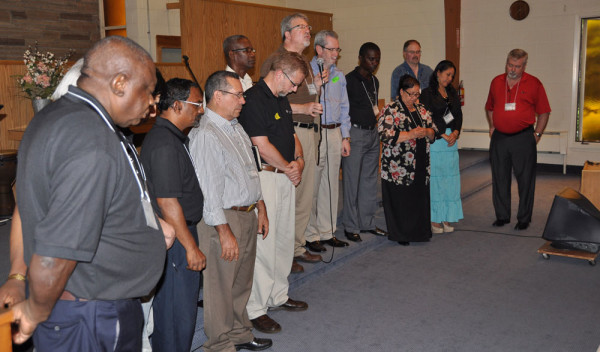
The General Conference delegates lined up at the front of the Stanley Park UB church in Kitchen, Ontario.
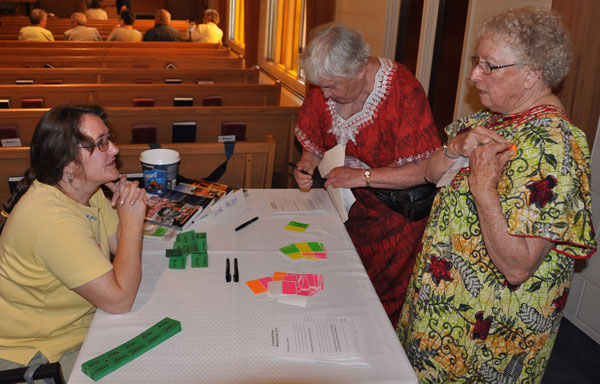
Former Sierra Leone missionaries Kathy Jones (right) and Audrey Federlein registering for the conference.
General Conference actually ended on May 31. But on Saturday, June 1, the Canadian conference held a missions conference at the Stanley Park UB church in Kitchener, Ontario. All of the national leaders had a chance to speak. It was a unique opportunity for the UBs of Canada to hear from such wide range of United Brethren leaders from around the world–probably a once-in-a-lifetime thing.
The conference started at 10am Saturday morning and concluded around 3 pm, with the church serving lunch. Paul Plato, Canada’s missions chairman, led the conference and kept things moving, with one person after another speaking.
Up to that point, all of the General Conference delegates had been staying at Emmanuel Bible College in Kitchener. But now, the group split up, with some of the delegates–those from Central America, Mexico, Jamaica, and Haiti– going home with missions conference attendees to their churches, where they would speak on Sunday morning. That left only the Hong Kong and US delegates spending the night at Emmanuel Bible College.
Bishop Phil Whipple would speak Sunday morning at Mill Crossing in nearby Cambridge, and Yiu Kin Keung would speak at Stanley Park. Jeff Bleijerveld was lined up to speak at the Stevensville UB church in the Niagara area.
Many more photos are posted on the United Brethren Facebook page.

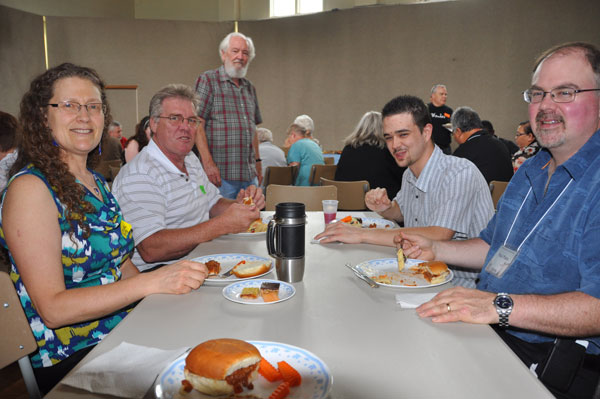
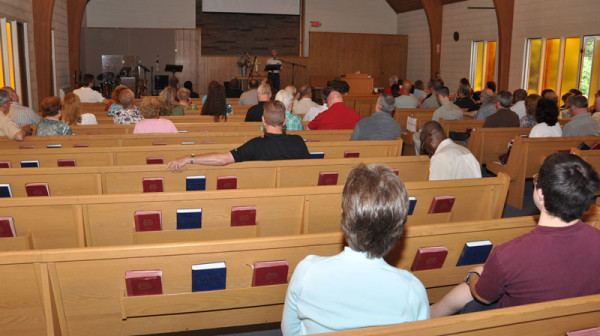
 Brian Magnus (right), Chairman of the General Conference
Brian Magnus (right), Chairman of the General Conference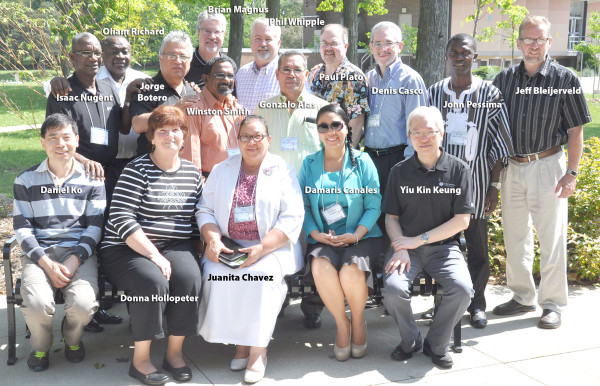
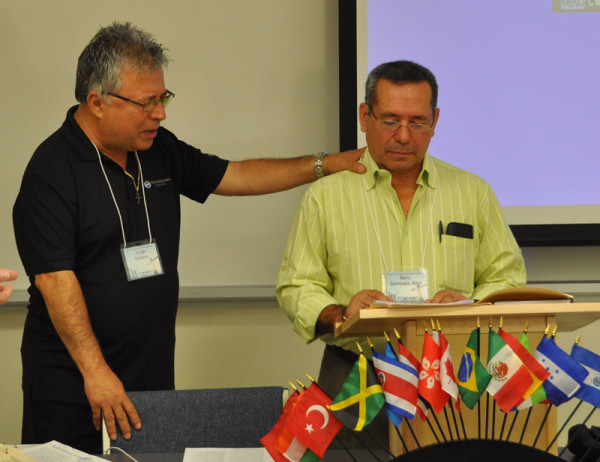
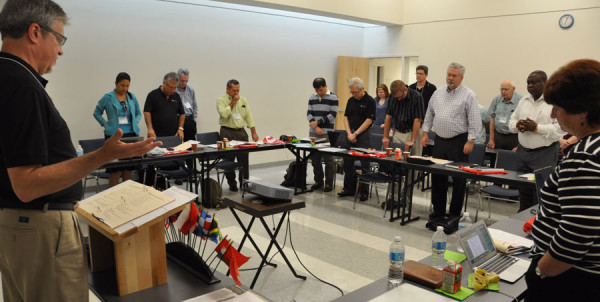
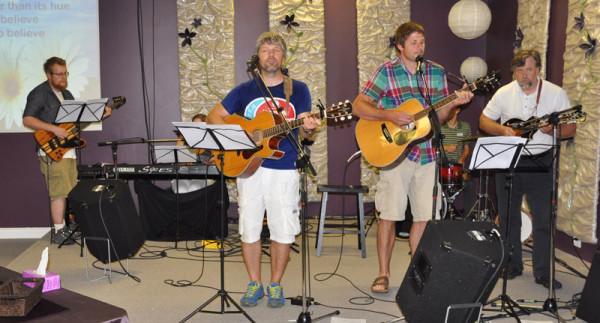
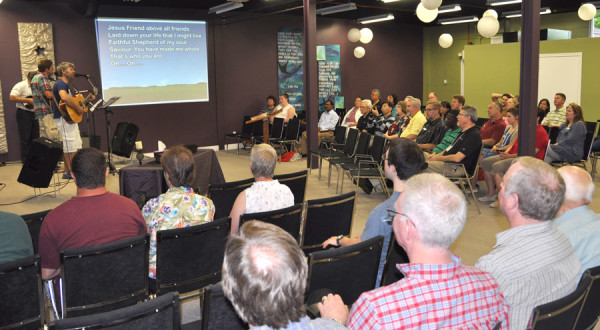
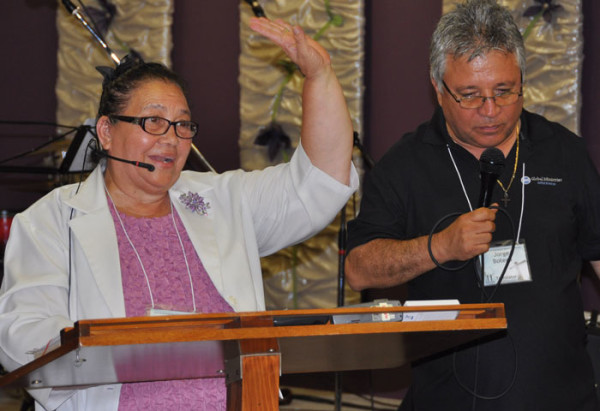
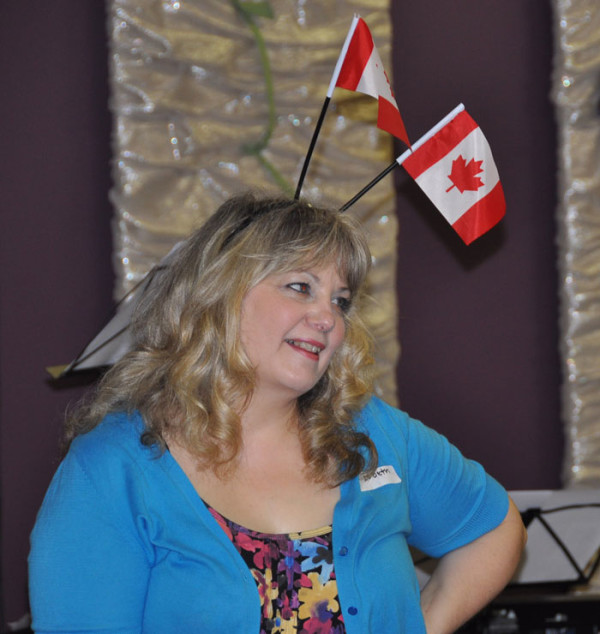
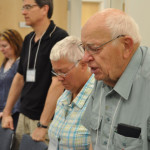
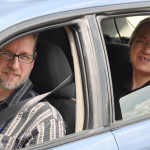
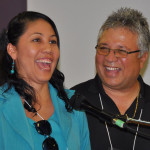
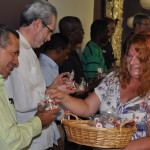
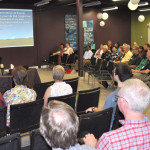
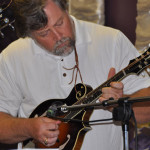
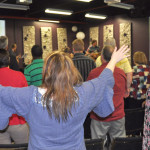
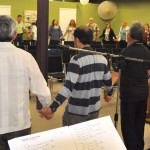
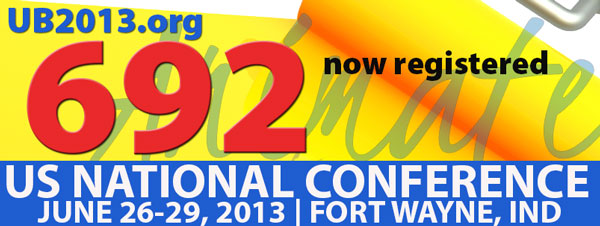
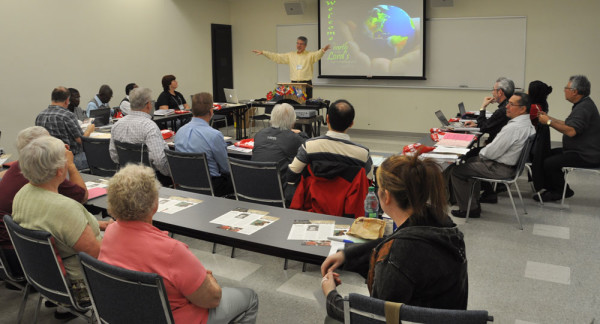
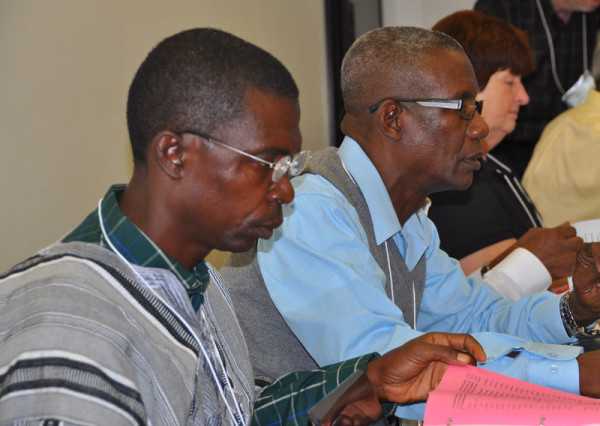
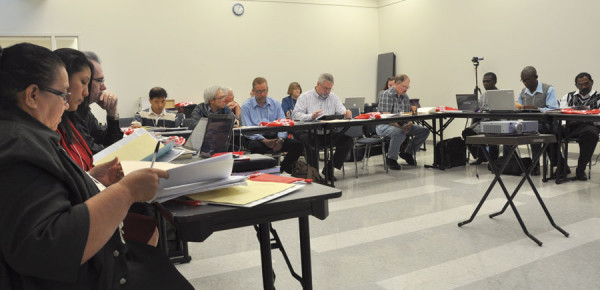
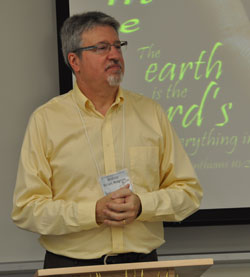
 Jill Van Deusen (right), 70, a former missionary in Sierra Leone, passed away on Thursday, May 23, at the University of Toledo Medical Center.
Jill Van Deusen (right), 70, a former missionary in Sierra Leone, passed away on Thursday, May 23, at the University of Toledo Medical Center.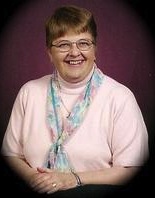
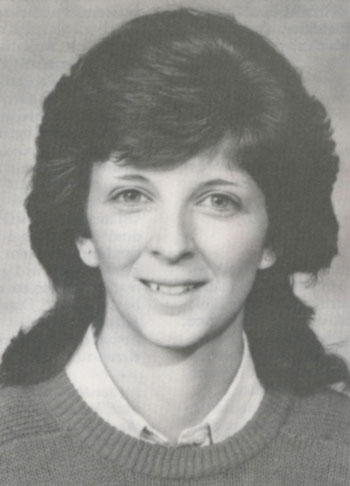 Steve Dennie, Communications Director
Steve Dennie, Communications Director